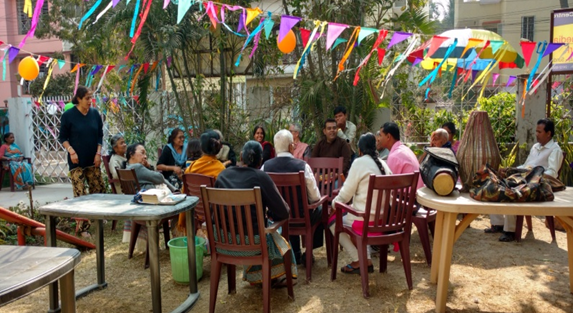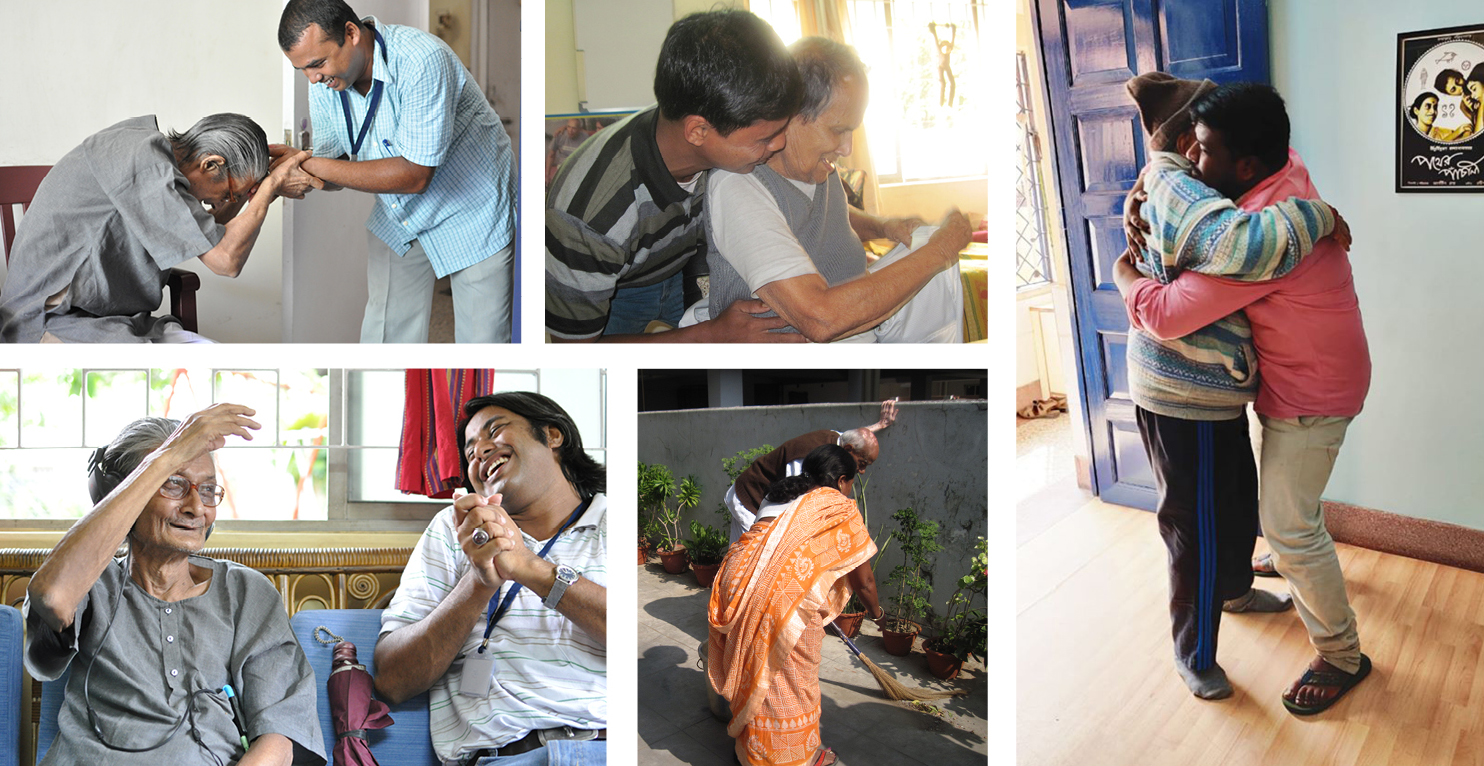Best Practice in Kolkata, India
Spark of Life Model of Care in Kolkata, India
By Nilanjana Maulik, Spark of Life Master Practitioner, Kolkata, India
Secretary, ARDSI Calcutta
Fellow, COMMONWEALTH ASSOCIATION FOR THE AGEING
28th March, 2024

Alzheimer’s and Related Disorders of India (ARDSI) Calcutta Chapter, established in 1999, completes 25 years of existence in the State of West Bengal (population nearly 103 Million). Our vision is to see an enhanced quality of life for those living with dementia and their caregivers with support of genuinely dedicated, compassionate, committed human resources through the Spark of Life Model of Care.
I and my team have been implementing this universal dementia care Model in the services towards people living with dementia since 2017, across the eastern region of the country covering the major cities to grassroot villages.
From discussing the Spark of Life Education during awareness building campaigns and with the practical guidance and support of Dementia Care International to train families and professional caregivers, the impact in terms of deeply connecting with the cause and the journey of the person with dementia is significant.
The most effective aspect of the Model is that is has an essential focus on humanizing dementia care. This very fact touches people across our highly populated region and hence the impact is profound. In addition, during training sessions with caregivers the promise that the knowledge and skills are not just for people in the early to moderate stage of dementia, but also for the advanced stage, gives immense hope to those who are in caring roles.
Simple lessons we have learned from the model, for example that we need to support the person with dementia to be set up for success instead of failure, help us change the perceptions of the community in a positive way towards the condition and address their lack of understanding of the needs of the person with dementia and elderly people in general.
The uniqueness of the Model is in the fact that it can be adapted to our culture. For that matter the model can be adopted into any culture as its basis is universal. I have found that the implementation is practical and simple, as is the process for evaluation and sustaining the positive impact.
Staff members and volunteers in our Indian culture can relate to the Spark of Life Model of Care and are enriched and encouraged to validate the awareness and lucidity of the person by accepting their ways. A client at Sriti Sudhay, our daycare center who thought the space was a temple was not corrected, as long as he appeared to feel good. The focus of the staff was to initiate a conversation and lead it to a positive connection. Another person who found it meaningful to help in the kitchen activities was allowed to do that as long as her safety was not compromised, or no one else was disturbed. By practicing the Model, we guarantee that every member who comes under our care space spends their day with lots of smiles, laughter and joy.

The other aspect is that the model helps staff morale, energy and attitude in a valuable way. The staff learn to question themselves and the care environment with insight and their new knowledge consistently. Their positive comfort and heightened confidence level when they are with their clients speaks volumes about this best practice Model.
The members of ARDSI Calcutta comprise of family caregivers of persons living with dementia, professional caregivers, specialized dementia care experts, eminent doctors, practicing neurologists, psychiatrists, neuro-psychologists and geriatricians, social workers and persons having compassion and passion for working for the elders and those experiencing dementia. ARDSI Calcutta, thus, is endowed with a rich multi-directional expertise and experience devoted to its mission and we utilise the best practice Model to educate all involved.
The Spark of Life Model of Care has helped us achieve our vision and deliver the quality service we have aimed to provide, promoting experiences of dignity, respect and unconditional love to help people living with dementia experience themselves as valuable persons.
Recommendations
Current challenges to effective care models in resource-constrained settings are many. In India resources, infrastructure, and training are inadequate, which diminishes the quality of life of people with dementia.
Implementation of the Spark of Life Model of Care across the globe can address this gap. Through funding the leadership education of more Master Practitioners the entire care workforce can be trained in context-specific fundamentals of this evidence-based Model to ensure care is appropriate for populations served, not just duplicated from high-resourced settings.
I urge Governments and concerned officials involved in aged care to prioritise investing in such capacity building in the culturally appropriate Spark of Life Model of Care and thus support healthcare services in their provision of best practice dementia care.
